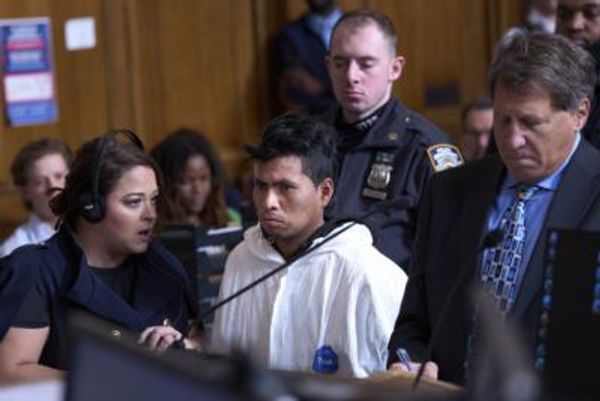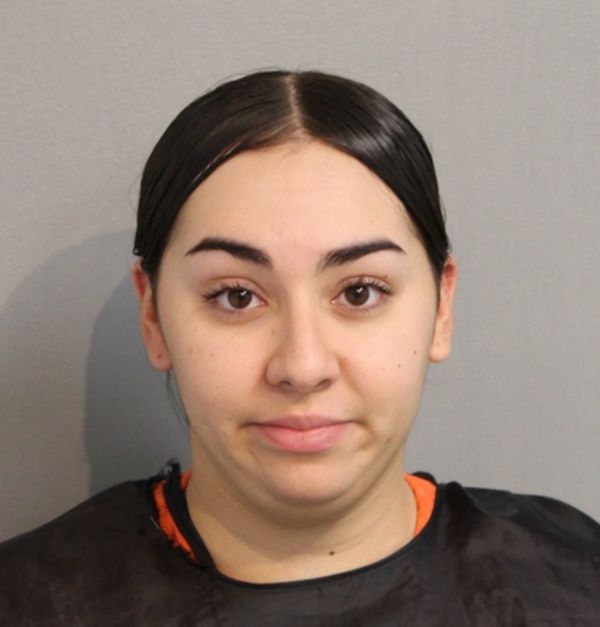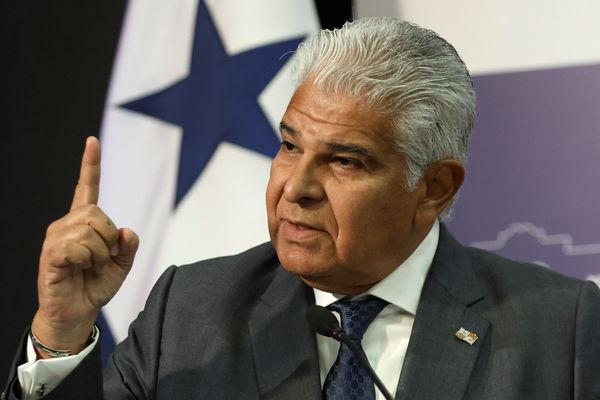
I know more about men’s violence than I do about my own menstrual cycle. This has always been the case. I have a deeper understanding of rape legislation than I do of cervical screening tests. I know which one I’ve googled more times. I know it is more acceptable for men to punch on at the pub during a football game than it is for me to use the word “discharge” in a social setting. Google can help locate Viagra within a 500-metre radius, but finding a doctor who takes my concerns about painful sex and periods seriously will take at least several years of enduring them.
I think about the fact that women cannot use “toxic masculinity” to describe toxic masculinity, because we are told the fix isn’t shaming men. I then think about how many women have been shamed into silence at the hands of a partner committing sexual and domestic violence against them. I think about how the media shames us for our bodies, and how governments try to control them. I think about why that does not attract the same criticism as our phrasing choices: because our bodily functions are taboo, because our pain makes men feel uncomfortable, so could we please do it quietly over there? We are to be seen and not heard — to such an extent that men liking women, being intrigued by our interests, wanting our company or aligning with our feminism is more socially taboo than the men who commit violence against us.
My dad messaged me the morning after the rally: he had seen the video of my speech on Instagram.
Great rally speech. PM material.
My dad is one of the people who I wanted to hear my message loudest. His feedback and response were important. As a large, masculine, stereotypically “Australian” man, what did he take away? What sank in? He had listened, but had he understood? I didn’t need agreement that domestic violence is an issue; I needed reflection on how he would respond to the call to action.
When I was little, my dad was the person I looked up to most. He’s a man people gravitate towards, a man who works harder than anyone I know. He’s a man who was not good at being a husband for many years. He’s a man who is continuously trying to be a better dad, who is becoming increasingly progressive and aware of how his past behaviour has impacted his relationships. My dad shows up. He has hard conversations with me and he has allowed me to publish the following story. When I discussed it with him in the process of writing this book it was the first time he was told what had happened. I think his allowing me to write about this is, in itself, the ultimate act of progress. He knows what it means to me to be able to share this with people. My parents make me believe every day that we are all capable of learning, of growing and of conversing with each other about hard things.
When I was 18, I returned from university in Brisbane during the semester break to my hometown in Orange, in central west New South Wales. My mum asked if I would come and meet the psychologist who had been seeing both my brother and sister. I thought that was a nice idea.
At the time, my parents were two years post-separation and an Apprehended Violence Order was in place. This ensured my dad did not go within a certain distance of my mum. The AVO had been functional for almost the entire period since their split. Their separation, during my final year of school, was an incredibly stressful and traumatising time — especially for my brother and sister, who were only 10 and 12.
I had grown accustomed to receiving urgent phone calls from both Mum and Dad at different times throughout this stretch, one fearing for her own safety and the other with serious mental health concerns. Dad needed help, but Mum needed protection. I was trying to provide both, while also wanting to be far away from them. I was failing at all these attempts. I have not told many people in my life about what happened during this period, mostly because I feel it does not “qualify” me as enough of a victim to give my story sufficient worth. I know this is absurd intellectually, but not emotionally. The other part is that I still speak to everyone in my family, and recalling this feels like a breach of their trust and our relationships. I want to make it clear: I love my parents, and this is a complex dynamic to carry. This is the truth from my personal perspective, and I do not claim it to match the truths of my relatives.
When I was sitting in the psychologist’s office with my mum, she told me that she had brought me here to chat with her. At first I thought it was potentially for treatment, which I had been averse to. I gave a “fine” look and nodded as we walked into the room together. The psychologist and my mum sat directly across from me. After a few minutes of general chatter, my siblings’ psychologist offered me a glass of water and began the conversation — the real reason I was there.
“Hannah, you are staying in Orange until Wednesday — is that right?”
“Yeah. I have two birthday parties and a couple of people to catch up with,” I told her.
“And Max and Kate are travelling to stay with your dad in Queensland?”
“Yep, on Saturday. Is that right, Mum?”
“That’s what we want to talk to you about.”
Mum looked at her shoes.
“Okay.”
“We have concerns your dad may attempt to hurt your brother and sister.”
The psychologist paused, looked straight into my eyes and took a breath before continuing.
“When violence and stalking behaviours are present, there is a heightened risk that he may hurt — kill — the children in order to get back at your mum. There are a few factors that can drastically reduce the likelihood of that occurring, and one is the presence of a guardian. You are much older than them, and he is far less likely to hurt you. My understanding is that he sees you as an adult, but not them. We believe it would be best if you go with them as a precautionary measure. You would be their guardian in these circumstances.”
I looked at Mum. My eyes were pleading and betrayed. I was eighteen. I felt overwhelmed by what was being placed on me and distressed about losing all the plans I had made and missing out on the time I got to spend at home by myself. I knew I was being selfish. “Mum, that isn’t going to happen. I have events to go to.”
“But imagine if it does happen … and you stayed behind.”
I think about this moment in my life a lot.
It is my belief that my dad would never do such a thing, but at the time, all I knew for sure was that he was as mentally unwell as he had ever been in his life. My father was experiencing significant suicidal ideation. He will be the first to admit that. I love my dad, and I trust my dad. We have a relationship that has grown and improved in the last few years. He engages with everything I do and he backs me, even when he disagrees.
It was only three or four years later that I began to understand the psychological impact that conversation had on me. Something I had pushed aside as being an overly worried parent and a mental health professional asking me to change my plans now resides at a much deeper level in my psyche. Seven years on, I have the emotional capacity to understand that I was truly being tasked with intervening in a double murder: the ultimate act of family violence. Whether there was actually any risk of it occurring is beside the point. When a young woman just reaching adulthood is faced with that kind of emotional strain, what does it teach her about relationships, violence and her own role within these dynamics?
During interviews and events, lots of strangers ask me how I came to be “this person”. But who is “this person”? Even contemplating that question makes me feel like an egotistical mole. How do I answer that? As an insecure twenty-five-year-old posing as a confident woman, I’m never sure what the truth is versus “what I’m supposed to say”. Should I be honest, or is that unhelpful to women and “the movement”? Should I say I’m insecure and that they would hate to hear what my psychologist has heard? Or should I smile and tell them to “push through that imposter syndrome, queen!! You’ve got this!!”?
I know innately that I’ve accumulated most of my skills and qualities because of my own passion and drive, and because of the people I love, from whom I learn different things. But too often I worry that much of who I am is because of the dark sharp parts, the bits that shouldn’t have had to happen. Too often I associate my best qualities with the pain and trauma I’ve experienced. How do I reckon with that? Who could I have been without these spikes and edges? Why did an eighteen-year-old have to hold all of that? Why can I still not put any of it down? If I do put it down, will I lose the career I have built articulating all of this for an audience of people who identify with it?
When I spoke at the [Sydney rally to end gender-based violence] without preparation, I think it was this heavy weight in my stomach, all the things I’ve been carrying around, coming to the surface. I wanted to scream on behalf of those who couldn’t any more. I wanted the changemakers to understand that they should not be walking beside us, because in fact they have been elected to walk three steps ahead and help bring us into a future free from these attitudes and behaviours. I wanted media decision-makers to know they were supposed to be two steps ahead, reporting to us and informing us. Instead, we’re dragging them out of the victim-blaming of centuries past.
I worry that in many ways it is wrong of me to share thoughts like this, and I fear the response if my loved ones read what I’ve written. Ultimately, I hate that people think I’m confident in what I say and do. The idea people have that I do not feel fear or anxiety about the statements I make and the experiences I share is laughable. I am terrified and I am exhausted. I know most of us are. I never want to push someone to share something and ignore their discomfort, but I do want to shine light on the impact you can have when you push through these layers of anxiety and challenge the alienation we risk in speaking out. Courage is born of vulnerability. Acts of courage breed further courage.
I am tired of patriarchy’s violence against women, but I’m just as tired of women believing it is our secret to keep and our problem to fix. I am tired of women sticking it out in relationships that “are not that bad”, because our default belief system is that a single woman is somehow sadder than an unhappily partnered one. I grew up around these conversations. I grew up leading these conversations with my baby brother and sister. When I started dating, I realised I hadn’t had these talks with myself. How could I pursue a healthy relationship when what I feared most was becoming exactly like my mum and dad?
This is an edited extract from Taboo (Affirm Press) by Hannah Ferguson.







